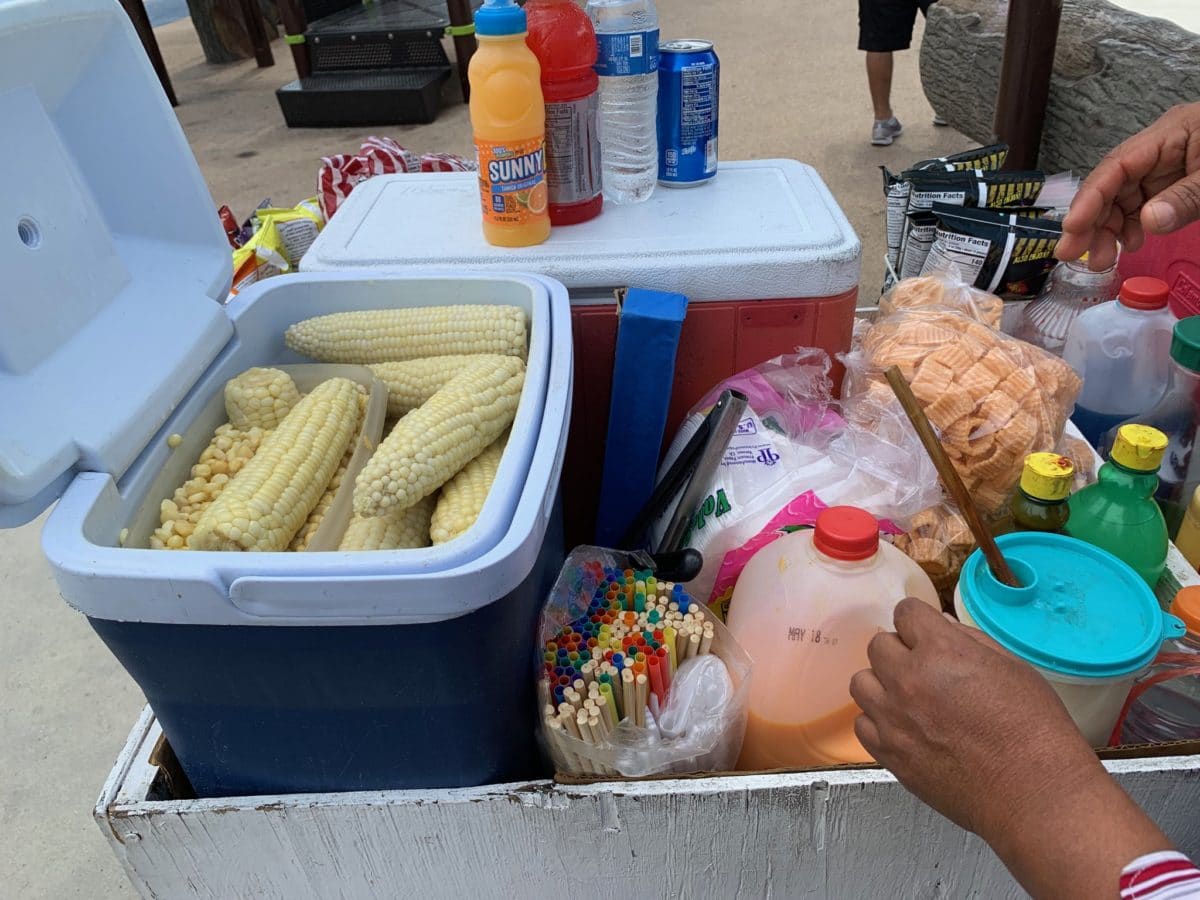[dropcap size=big]A[/dropcap]s an Angeleno and academic, I’m appalled by the Los Angeles City Council’s recent approval of a street vendor permit fee of $541 (starting July 1, 2020) under the city’s “Sidewalk and Park Vending Program.” It was a 13-0-2 vote, where the lords of the nation’s second-largest city voted in unison with the exception of two absent council members: Gil Cedillo and Monica Rodriguez. Those who voted “yes” to this prohibitive fee for our city’s most vulnerable workers and petty entrepreneurs include the following council members: Herb Wesson, Joe Buscaino, Jose Huizar, Curren D. Price, Mike Bonin, Paul Krekorian, Bob Blumenfield, David Ryu, Paul Koretz, Nury Martinez, John Lee, Mitch O’Farrell, and Marqueece Harris-Dawson.
Given that Los Angeles Council Members earn an average salary of $173,676 (or $184,676 with retirement and healthcare benefits), for these privileged and powerful individuals, $541 amounts to a fancy concert and dinner night out without financial worries. In contrast, according to a 2015 report by the Economic Roundtable, Sidewalk Stimulus: Economic and Geographic Impact of Los Angeles Street Vendors, street vendors “…generate on average $204 a week or $10,098 a year in revenue.”
Hence, street vendors must work almost three weeks to simply pay for the expensive $541 fee.
All of these so-called leaders should be ashamed of themselves!
According to the aforementioned report, the city benefits financially from the thousands of street vendors operating in the city: “From food to merchandise, 50,000 sidewalk entrepreneurs stimulate the local economy by generating $434 million in economic activity.” Now, if the city is already receiving the financial benefits from these economic activities by informal workers and street-level entrepreneurs, why impose a financial burden on them with a $541 fee?
In addition to this fee, street vendors must also secure business licenses (city, county, state) and Employer Identification Number (EIN), along with county health permits (Public Health Operating license), etc.
Informal workers and street-level entrepreneurs mostly operate in the unregulated economy precisely because they’ve been marginalized from the formal economy. They have been pushed to the margins for numerous reasons, such as lack of formal education, limited English skills, lack of legal status, and other similar marginalizing reasons.
While I’m aware of the state-mandated rules for cities who want to enforce street vending activities, here’s a question to the wise council members: If the informal workers and street-level entrepreneurs could afford small business fees and have the ability to navigate government bureaucracy, why didn’t they do it in the first place?
The answer: Informal workers and street-level entrepreneurs mostly operate in the unregulated economy precisely because they’ve been marginalized from the formal economy. They have been pushed to the margins for numerous reasons, such as lack of formal education, limited English skills, lack of legal status, and other similar marginalizing reasons.
In an edited volume of The Informal Economy: Studies in Advanced and Less Developed Countries (1989), Dr. Manuel Castells and Dr. Alejandro Portes provide an oft-cited definition of the informal economy, emphasizing its unregulated characteristics: “The informal economy [is] a process of income-generation characterized by one central feature: It is unregulated by the institutions of society in a legal and social environment in which similar activities are regulated.”
It’s time for city leaders to protect the streets where Mexican and Central American immigrants dominate this informal labor niche, instead of punishing them in an already competitive and hostile city for the marginalized.
As part of this definition, street vendors join other hardworking individuals in the informal economy. For example, a typical day in 2004 saw 303,800 informal workers in the City of Los Angeles. According to Hopeful Workers, Marginal Jobs: L.A.’s Off-the-Books Labor Force by Daniel Flaming, Brent Haydamack, and Pascale Joassart, this figure accounts for 16 percent of the city’s labor force.
In short, given the significant amount of workers and street-level entrepreneurs in the informal economy, where street vendors stand out given their visibility (sidewalks, parks), city leaders must do a better job in passing just and humane policies. If they’re restricted based on the state’s regulations, they must simply leave street vendors alone with a hands-off approach.
It’s time for city leaders to protect the streets where Mexican and Central American immigrants dominate this informal labor niche, instead of punishing them in an already competitive and hostile city for the marginalized.







